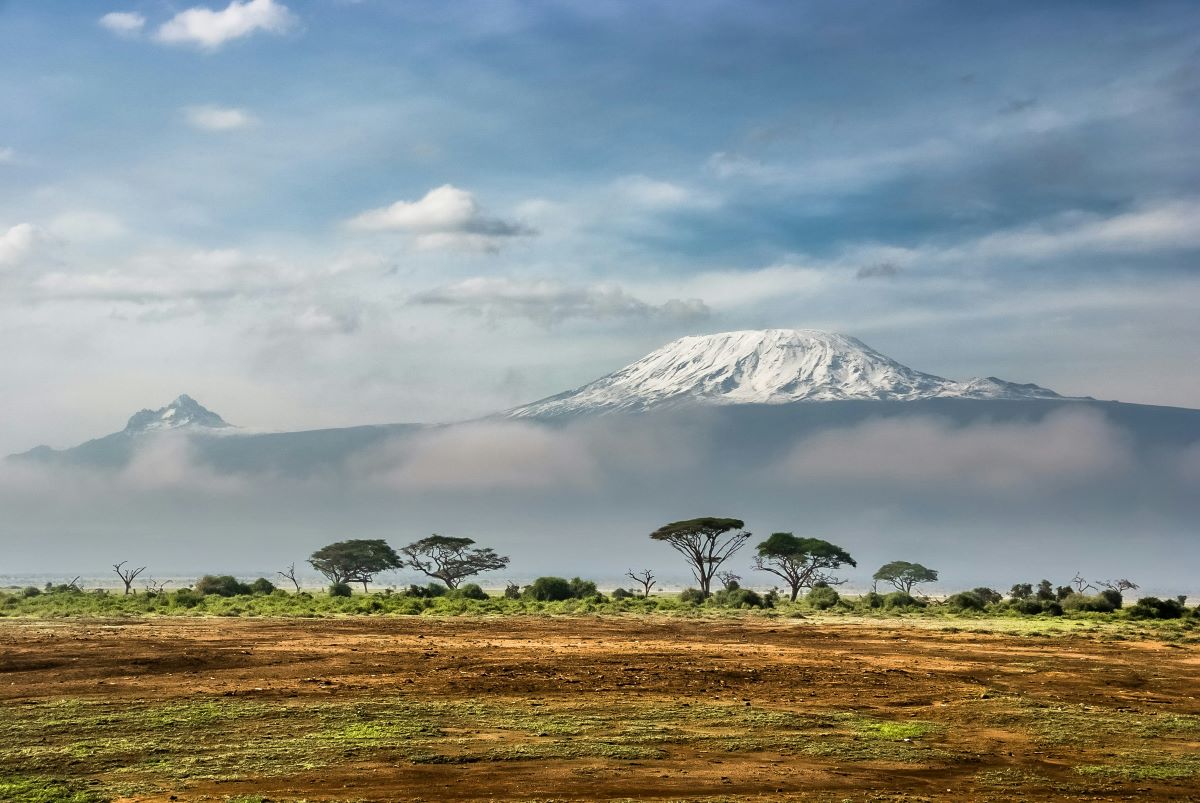Eco-Tourism Destinations in Africa for Sustainable Travelers
Africa, with its marvelously diverse cultures, exciting landscapes, and rich biodiversity, is one of the most preferred travel destinations. Eco-tourism provides an opportunity for those who value sustainability to discover this stunning continent while protecting the environment and helping local people. Here are some top eco-tourism destinations in Africa for sustainable travelers.
1. Maasai Mara, Kenya
The Maasai Mara National Reserve is one of Africa’s most famous safari parks, home to the annual Great Migration. In addition, the reserve is a center for eco-tourism endeavors.
Sustainable Experiences:
- Stay at lodges such as Basecamp Explorer, which generates its own solar power and contributes to tree-planting efforts.
- Arrange for cultural tours/workshop with the Maasai community.
Sustainability Efforts:
- Local conservancies are in partnership with the Maasai people to conserve wildlife, while allowing sustainable income through tourism.
2. Bwindi Impenetrable Forest, Uganda
Bwindi Impenetrable Forest, home to about half of the world’s remaining mountain gorillas, is a UNESCO World Heritage Site and a textbook case of eco-tourism success.
Sustainable Experiences:
- Gorilla trekking permits help fund conservation and community development.
- Eco-friendly lodges such as Buhoma Lodge and Clouds Mountain Gorilla Lodge are committed to sustainable practices.
Sustainability Efforts:
- Proceeds from tourism are invested in anti-poaching efforts and health care services for local communities.
- Speaking of mountain gorillas, they have been helped in the past few years thanks to conservation efforts.
3. Okavango Delta, Botswana
The Okavango Delta is a UNESCO World Heritage Site, an unspoiled wetland bustling with wildlife. Its seasonal flooding creates a distinctive ecosystem that draws eco-tourists worldwide.
Sustainable Experiences:
- Opt to lodge at places such as Camp Okavango or Jao Camp, whose power comes from renewable energy.
- Create minimal movement like mokoro (traditional canoe) safaris.
Sustainability Efforts:
- Wildlife conservation and community development projects are financed by tourism revenue.
- American National Parks might be different because they have strict rules for minimal environmental impact tourism.
4. Namib Desert, Namibia
One of the world’s oldest deserts, the Namib Desert has spectacular landscapes and unique wildlife adapted to harsh conditions. It is a prime destination for ecotourists.
Sustainable Experiences:
- You’ll be staying at Sossusvlei Desert Lodge, which incorporates solar and water recycling.
- Learn about desert conservation on guided tours of the dunes.
Sustainability Efforts:
- In Namibia, the Community-Based Natural Resource Management program gives local communities the authority to manage and profit from conservation areas.
5. Volcanoes National Park, Rwanda
Another refuge for mountain gorillas is Volcanoes National Park; it is a model of Rwanda’s eco-tourism commitment.
Sustainability Experiences:
- One of the costliest permits, gorilla trekking permits finance conservation and community programs.
- Try eco-lodges such as Bisate Lodge, which marries sustainability with luxury.
Sustainability Efforts:
- Gorillas get their homes back through reforestation projects.
- The income from tourism funds education and healthcare for community initiatives.
6. Seychelles
An island paradise, Seychelles is a leader in sustainable tourism — finding the balance between development and preservation.
Sustainable Experiences:
- Use eco-resorts such as North Island Lodge, which emphasizes renewable energy and local sourcing.
- Go on diving and snorkeling tours, sustainably-The Adventures.
Sustainability Efforts:
- Over 30% of Seychelles’ waters are covered by protected marine parks.
- There’s skeletal legislation on single-use plastics, for which the government is an active promoter.
7. Simien Mountains National Park, Ethiopia
Simien Mountains, famed as the “Roof of Africa,” boast stunning landscapes and unique wildlife, including the Ethiopian wolf and gelada baboon.
Environmentally Sustainable Experiences:
- The guided trekking means you can explore the park with a minimal environmental footprint.
- Stay in eco-lodges such as Limalimo Lodge, which is constructed from sustainable materials.
Sustainability Efforts:
- Protect endangered species and restore natural habitats through conservation initiatives.
- Local communities and anti-poaching programmes are funded through tourism revenue.
8. Chumbe Island Coral Park, Tanzania
Off the coast of Zanzibar, Chumbe Island Coral Park is a private nature reserve, as well as a protected area for marine conservation and eco-tourism.
Eco-Friendly Experiences:
- Live in eco bungalows with solar energy and rainwater harvesting.
- Snorkeling tour of the coral reef sanctuary, and explore intertidal zones.
Sustainability Efforts:
- The park uses earnings from the sale to fund local communities’ environmental education programs.
- Rigorous restrictions on visitor numbers allow for maximum ecological protection.
9. Cape Winelands, South Africa
Known for its wine, the Cape Winelands area also provides eco-tourism experiences that combine sustainability and indulgence.
Sustainable Experiences:
- Vineyard stays such as Spier Wine Farm, an organic farm that employs local artisans.
- Reap the benefits of sustainable wine tours and farm-to-table dining.
Sustainability Efforts:
- Regional protection of natural habitats through conservation projects
- Community programs that strengthen local workers and artisans.
10. Tsavo National Parks, Kenya
Tsavo East and Tsavo West National Parks are among Kenya’s largest protected areas, covering expansive savannah, forests, and rivers. It boasts amazing biodiversity and smaller crowds than more famous reserves.
Experience the Eco-Friendly Way:
- Stay at eco-lodges such as the Kilaguni Serena Safari Lodge, which is powered by renewable energy and supports local communities.
- Go for guided nature walks and birdwatching trips
Sustainability Efforts:
- Protect elephants, lions, and other keystone species through anti-poaching initiatives.
- Local collaborations support sustainable tourism practices.
Why Eco-Tourism in Africa? Explore For Eco Tourism in Africa.
Eco-tourism in Africa enables visitors to explore:
- Reduce their environmental impact.
- Donate directly to wildlife conservation.
- To have authentic, impactful experiences that immerse them in the natural world.
As such, travelers can take a step towards ensuring that Africa’s unique ecosystems and cultures are preserved for generations to come by visiting eco-friendly destinations and choosing eco-friendly accommodations.
Final Thoughts
There is no shortage of eco-tourism destinations in Africa for sustainable travelers. From Uganda’s dense forests to Seychelles’ pristine beaches, each destination offers a chance to explore while responsibly giving back to the planet and local communities. Making green travel your priority will help you create amazing experiences in Africa whilst helping to conserve the continent’s natural and cultural environment. So load up your bags and hit the road on a sustainable adventure across this amazing continent.
📞 Call/WhatsApp: +254 748 057 500
📧 Email: info@pleasantadventure.com
🌍 Website: www.pleasantadventure.com
FAQs
1. What is eco-tourism, and why is it important in Africa?
Eco-tourism focuses on responsible travel that conserves the environment and supports local communities. In Africa, it helps protect wildlife, reduce carbon footprints, and promote sustainable development.
2. What are the best eco-tourism destinations in Africa?
Top eco-friendly destinations include Bwindi Impenetrable Forest (Uganda), Okavango Delta (Botswana), Namibia’s Skeleton Coast, Volcanoes National Park (Rwanda), and Chumbe Island (Zanzibar).
3. Which African safaris offer sustainable tourism experiences?
Eco-friendly safaris are available in Maasai Mara (Kenya), Serengeti (Tanzania), Kruger National Park (South Africa), and Botswana’s private conservancies, which emphasize conservation and low-impact tourism.
4. What are the best eco-lodges in Africa?
Some of the best eco-lodges include Gibb’s Farm (Tanzania), Grootbos Private Nature Reserve (South Africa), Bisate Lodge (Rwanda), and Campi ya Kanzi (Kenya). These lodges use solar energy, sustainable architecture, and support local communities.
5. How can I minimize my carbon footprint while traveling in Africa?
Choose eco-friendly accommodations, use public transport or electric safari vehicles, support local businesses, and avoid single-use plastics.
6. What are some African destinations for responsible wildlife encounters?
Visit Gorilla trekking parks in Uganda & Rwanda, Elephant conservation centers in Kenya, and whale-watching sites in South Africa for ethical wildlife experiences.
7. What are the best African countries for community-based tourism?
Kenya, Tanzania, Botswana, and Namibia offer community-led tourism initiatives where visitors can stay in local villages, support handicrafts, and experience authentic culture.
8. How can travelers ensure their safari is ethical and sustainable?
Choose lodges and tour operators certified by eco-tourism organizations, avoid unethical animal interactions, and support conservation projects.
9. What eco-tourism activities can I do in Africa besides safaris?
Try forest hikes, kayaking in protected waters, birdwatching, volunteering for conservation projects, and staying in eco-villages.
10. What’s the best time to visit eco-tourism destinations in Africa?
The dry season (June–October) is best for wildlife viewing, while the green season (November–May) offers lush landscapes, fewer crowds, and lower prices.

